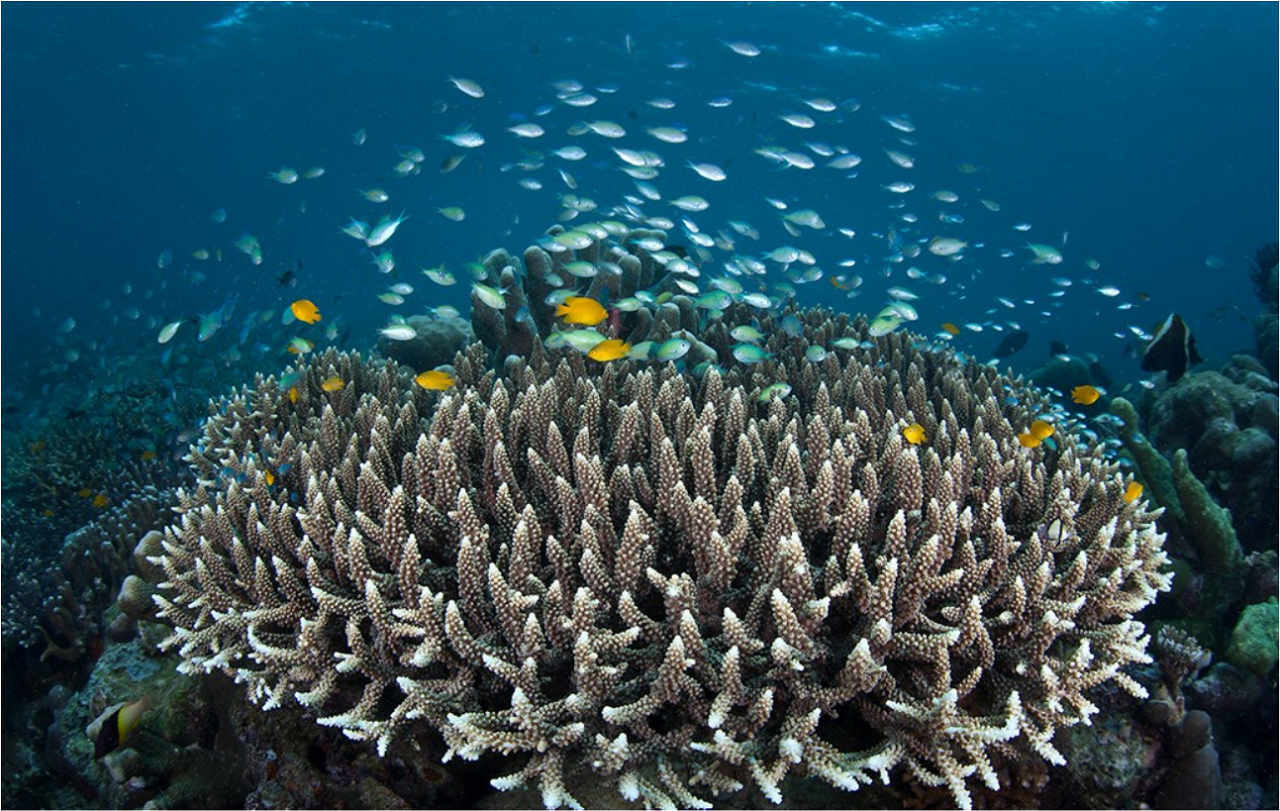
According to a new Australian study that looked at changes in reef health, coral types, and resident fish over three decades, fish communities on Australia's famed Great Barrier Reef may become less colourful as oceans warm and corals bleach.
"Future reefs may not be the colourful ecosystems we recognise today," write marine ecologist Chris Hemingson and his colleagues from James Cook University in their paper published in Global Change Biology. "Our findings suggest that reefs may be at a tipping point and will become much less colourful in the coming years."
Findings of Study:
The study, which comes just weeks after the Great Barrier Reef was hit by another widespread bleaching event caused by rising carbon emissions, focused on reefs surrounding Orpheus Island, which is located in the centre of the world's largest coral reef system.
Previous coral bleaching events have profoundly altered the make-up of the area's coral reefs, with the loss of soft and branching corals a likely factor in the disappearance of brightly coloured fish, which are becoming increasingly rare, according to the study.
"As these complex corals become rarer, fish communities on future reefs impacted by climate change may become duller," the trio of researchers write on their group's website.
Hemingson and colleagues investigated the diversity of colours found in reef fish communities and related it to the types of habitats in which those fish live.
Whether fish evolved bright colours to attract a mate or neutral tones to blend in and avoid predators, their colouration is inextricably linked to the coral reefs they live in.
Fish communities in healthy parts of the reef with abundant complex corals were compared to areas where massive, encrusted corals dominate after major disturbances like heatwaves and cyclones, and degraded reefs with few corals smothered in algae.
"We discovered that as the cover of structurally complex corals on a reef increase, so does the diversity and range of colours present on fishes living in and around them," says Hemingson, who concentrated on small fishes that rarely venture far from their home patch of reef.
"However, as the cover of turf algae and dead coral rubble grows thicker, the colour diversity decreases to a more generalized, uniform appearance."
This does not bode well for reef fishes in warming waters, so Hemingson and colleagues examined data collected annually on fish communities inhabiting reefs around Orpheus Island for the past 27 years to see if the trends held true over time.
According to previous research, only 2% of the Great Barrier Reef has been untouched by the five mass coral bleaching events that have occurred in the last 30 years – a truly horrific toll of human-caused, emissions-driven marine heatwaves.
The first recorded mass bleaching event in 1998 was especially damaging to the reefs around Orpheus Island, damaging complex branching corals and causing a "complete shift" in fish communities, according to Hemingson and colleagues.
The most visually appealing yellow and green fishes, such as the lemon damselfish and green coral goby, have declined in abundance by roughly two-thirds in the three decades since.
"Ongoing declines (exacerbated by further disturbance events) are likely to lead to a complete loss of these brightly coloured species," Hemingson and his coral reef colleagues write, "effectively 'draining' the colour out of fish communities, making them dull and drab."
Although the massive and encrusting boulder corals that replaced soft, branching corals are more resistant to heat impacts – effectively hardening the reef against future stressors – they likely provide less protection from predators for brightly coloured fishes.
"Unfortunately," the researchers write, "this means that the corals most capable of surviving the immediate effects of climate change are unlikely to maintain the diversity of colours currently supported by coral reefs."
"Fish communities on future reefs are thus likely to be a duller version of their previous configurations, even if coral cover remains high," the researchers write.
Hemingson recognizes the grief that people may experience as fish species and coral reefs are lost- ecological grief that scientists studying coral reefs firsthand are all too familiar with. However, as scientists have demonstrated with zeal, grief can be a powerful motivator that drives people to act.










